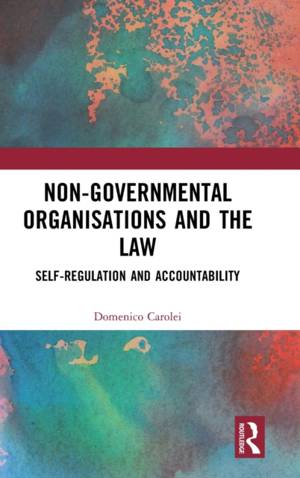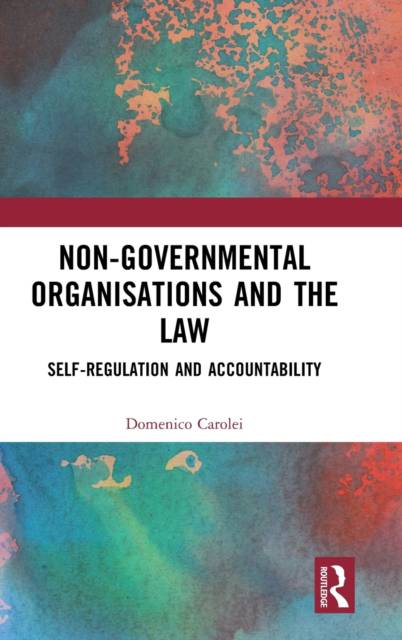
- Afhalen na 1 uur in een winkel met voorraad
- In januari gratis thuislevering in België
- Ruim aanbod met 7 miljoen producten
- Afhalen na 1 uur in een winkel met voorraad
- In januari gratis thuislevering in België
- Ruim aanbod met 7 miljoen producten
Omschrijving
This book examines accountability issues and the problems of regulating non-governmental organisations (NGOs) through self-regulation. It focuses on methods of self-regulation for NGOs in response to prominent scandals that revealed problems with their accountability, notably the 'Mafia Capitale' scandal in Italy and the Oxfam GB scandal in Haiti. It also touches upon other accountability failures, including the allegations against the WWF of facilitating human rights abuses of indigenous groups in Cameroon.
The work brings a legal approach to the topic of NGO self-regulation and accountability, contributing to the academic and policy debate in several ways. It advances a brand-new theoretical model to explain the reasons behind NGOs non-compliance with self-regulation, examines the reasons for self-regulation failures, identifies new accountability routes, and recommends proposals for sectoral reform.
The book will be of great interest to scholars, researchers and PhD students who work in the area of NGO regulation and accountability from a legal perspective as well as to accountability and NGO scholars working in other disciplines. It will also appeal to practitioners and policymakers who work on the development of NGO policies.
Specificaties
Betrokkenen
- Auteur(s):
- Uitgeverij:
Inhoud
- Aantal bladzijden:
- 154
- Taal:
- Engels
- Reeks:
Eigenschappen
- Productcode (EAN):
- 9781032118512
- Verschijningsdatum:
- 11/05/2023
- Uitvoering:
- Hardcover
- Formaat:
- Genaaid
- Afmetingen:
- 156 mm x 234 mm
- Gewicht:
- 412 g

Alleen bij Standaard Boekhandel
Beoordelingen
We publiceren alleen reviews die voldoen aan de voorwaarden voor reviews. Bekijk onze voorwaarden voor reviews.









